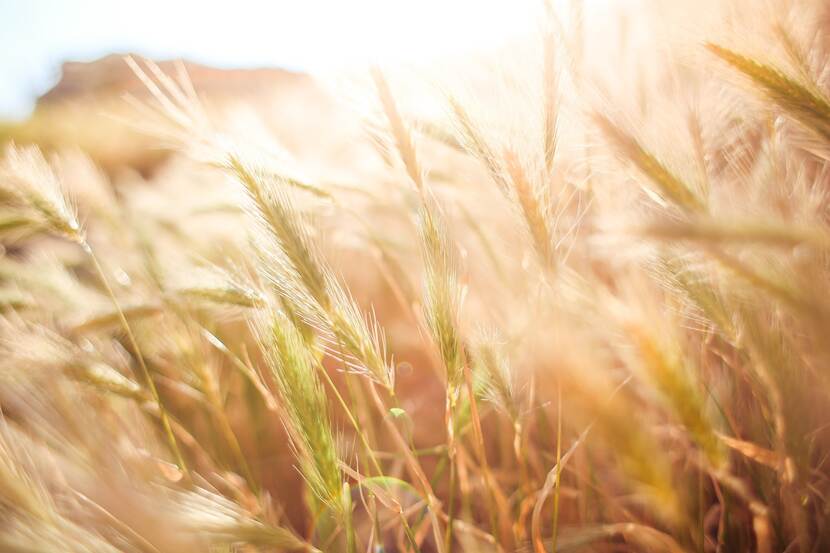Serbia: IPARD III call open
Poultry farming prospects improve; Ferrero looking to source more hazelnuts from Serbia; nature conservation are size at bottom of European list - Our weekly briefing on agriculture, food and nature news in Serbia

IPARD III call opened
As of February 21, Serbian farmers can apply for the public call for investments in physical assets related to processing and marketing agricultural and fishery products under the EU-funded IPARD 3 Program, the Ministry of Agriculture announced. This call is open to registered farms, including entrepreneurs, companies and cooperatives, and supports sectors such as milk, meat, eggs, fish, fruits, vegetables, grapes, grains, and industrial crops.
Eligible investments include facility construction, equipment purchases, and acquiring new machinery, tools and software. Applicants can request funding for eligible costs ranging from €20,000 to €1.3 million, with a maximum support limit of €2.5 million per applicant over the IPARD III program period. The public call is open until March 14, 2025, and details are available on the Serbian Paying Agency’s website.
Poultry farming profitability improves
Poultry farming is one of the key segments of Serbia’s agriculture and food industry. However, in recent years, it has faced numerous challenges, including rising costs of animal feed and energy, fluctuations in demand, and increasingly strict regulations. Despite market turbulences, the sector continues to grow steadily, with some companies successfully improving their production by implementing modern technologies and quality standards.
According to data from the credit rating agency CompanyWall, poultry farming businesses in Serbia have been recording increasing profits year after year. In 2021, the total profit in the sector amounted to €5.1 million, rising to €12.8 million in 2022, and reaching €21.4 million in 2023. Miroslav Djurdjevic, from the family-owned company “Jaje Produkt”, established in 1996, explains that grain prices directly impact their business and profit, and these prices have risen significantly in recent years.
"Our company has a storage capacity of 6,000 tons, and during the harvest, we purchase grain at more favorable prices, which helps us avoid major production issues," explained Mr Djurdjevic. The company currently operates three facilities with a total of 115,000 laying hens.
Djurdjevic highlights that Serbian eggs cannot be exported to the EU due to legal restrictions but points out the high domestic market prices. "We operate exclusively in the domestic market. Occasionally, we export some of our production to Montenegro or Bosnia and Herzegovina, but our capacity is primarily focused on meeting domestic demand. For wholesale, we sell eggs for €0.085 – 0.09, while in stores, they cost €0.19 -0.2. I believe eggs have the highest retail markups," added Mr Djurdjevic. The company continuously adapts its poultry farming and egg production to new technologies and standards and has applied for IPARD funding, though they are still awaiting a response.
However, Djurdjevic believes that state support for the sector is insufficient. Jaje Produkt employs 32 workers and has been increasing its profit since 2021. According to total profit rankings in 2023, the most successful company in the sector was Agro Djole with 130 employees. Robins company is second ranked according to the profit and employs 55 people.
Ferrero encourages hazelnut cultivation in Serbia
Serbia's exceptional natural conditions for hazelnut production are being leveraged through a strategic partnership between Ferrero and the Serbian Ministry of Agriculture, ensuring long-term stability for this agricultural sector, reports Radio-Television of Vojvodina (RTV).
As one of the world's largest hazelnut buyers, Ferrero has expressed interest in increasing its procurement from Serbia, creating new opportunities for growth and development within the country's agricultural sector. "Ferrero values long-term relationships with its partners, and this applies to Serbia as well. We aim to be a long-term buyer of Serbian hazelnuts, which is why we established Agri Serbia. Last year, we celebrated its tenth anniversary, demonstrating that top-quality and high-quantity hazelnut production is achievable in this country," said Stefano Galjaso, Development Manager at Ferrero. Ettore Fontana, General Manager of Agri Serbia, based in the village of Aleksa Santic in Vojvodina, noted that the initiative is still in its early stages. "Producers have completed their first significant harvests after years of investment and production management. Gaining experience and adopting best practices remain crucial," he explained.
RTV visited a cooperative hazelnut plantation in Gornja Rogatica, north Backa District, to learn more about the partnership between growers and Agri Serbia, Ferrero's subsidiary. "The price remains relatively stable and predictable. The key is producing Ferrero-quality hazelnuts and adhering to all agronomic practices. With support from Agri Serbia's agronomists, achieving high quality is feasible, and the production is highly profitable," stated agronomist Dejan Filanovic.
Serbia ranks low in nature conservation areas
Only slightly over eight percent of Serbian territory is designated as protected nature, making it at the bottom of the list of European countries by this criteria - the share of protected areas. Out of 45 European countries listed in the UN and World Bank database, Serbia has the third lowest percentage of protected areas, reports the Klima 101 portal. This percentage represents the share of a country’s territory that is under protection, whether as a national park or at a lower level of nature protection. The highest-ranked countries by this criteria are: Bulgaria, with 41.04% of its territory protected, Slovenia (40.44%), and Croatia (38.51%). Many other European countries also have double-digit percentages of protected land, except for a few that, along with Serbia, rank at the bottom of the list.